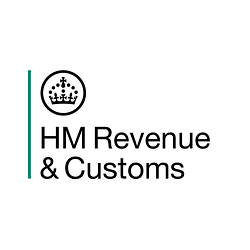
Press release -
Direct sellers offered chance to settle tax bills
Under the time-limited opportunity, direct sellers, often called “agents”, “consultants”, “representatives” or “distributors”, can pay the tax they owe and benefit from lower penalties available to those who come forward, rather than wait for HMRC to catch up with them.
Direct selling involves selling directly to customers without the need for a shop. Selling can involve demonstrating a product in a customer’s home, sometimes at a party, while some agents sell door to door, often using catalogues. Direct sellers take commission on the sales they make.
Marian Wilson, head of HMRC Campaigns, said:
“If you are involved in direct selling and have not told HMRC about all of your income, you may not be paying the right amount of tax. The Direct Selling campaign is an opportunity for you to bring your tax affairs up to date, on the best possible terms.”
Direct sellers are generally considered to be self-employed. This means they are responsible for telling HMRC about what they earn and for calculating and paying their own tax. For information on the responsibilities of being a self employed direct seller, people can visit http://bit.ly/Pe2ROG and also watch a YouTube video: http://bit.ly/PtpzVO
To take part in the campaign, direct sellers should:
- Tell HMRC about the tax due and make arrangements to pay any tax, interest and penalties owed by 28 February 2013.
How do they do this?
- From 26 September, by completing a disclosure form online at http://www.hmrc.gov.uk/campaigns/dsc-form.pdf
For further help and support about the campaign, direct sellers can phone 0845 602 3353, where a dedicated team is available to give information.
Nearly £510 million has been raised by HMRC from campaigns, and a further £120 million from follow-up activity. Campaigns launched so far have targeted offshore investments, medical professionals, plumbers, VAT defaulters, coaches and tutors, electricians and online traders.
Notes for editors
1. The benefits of the Direct Selling campaign are that those who make a full disclosure:
- will be offered a simple and straightforward way to put their tax affairs right, and
- may not be charged a penalty at all, with most receiving a penalty of no more than 10 per cent of the tax they owe.
2. Once this disclosure opportunity closes on 28 February 2013, taxpayers who have not come forward but are found to have unpaid tax liabilities will face higher penalties, rising to 100 per cent of the tax unpaid or, potentially, criminal investigation.
3. Further information on HMRC campaigns: www.hmrc.gov.uk/campaigns/news.htm
4. Follow HMRC on Twitter @HMRCgovuk
5. HMRC’s flickr channel www.flickr.com/hmrcgovuk
Related links
Topics
Issued by HM Revenue & Customs Press Office
HM Revenue & Customs (HMRC) is the UK’s tax authority.
HMRC is responsible for making sure that the money is available to fund the UK’s public services and for helping families and individuals with targeted financial support.

